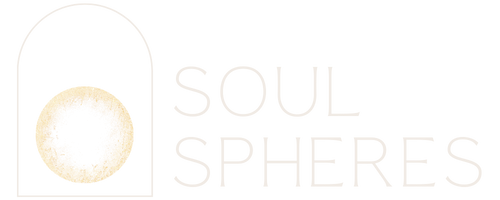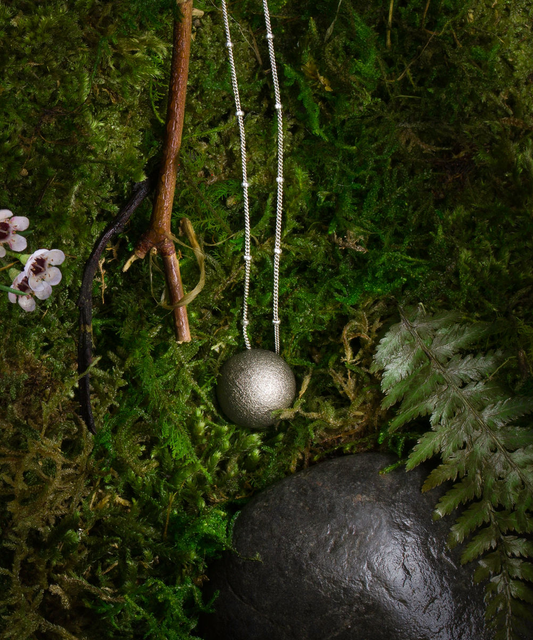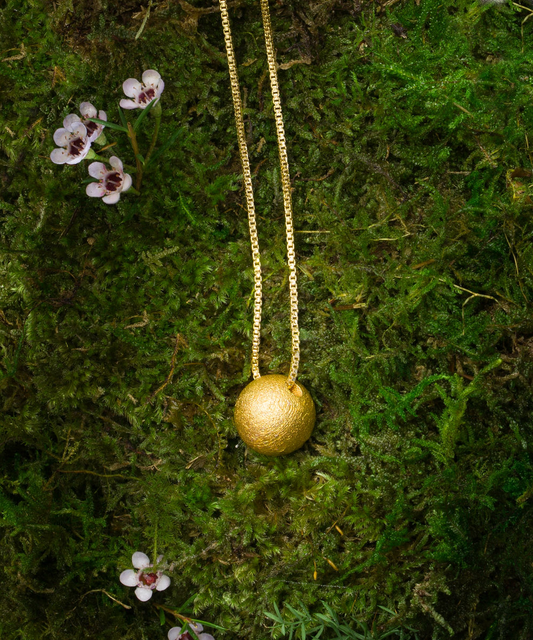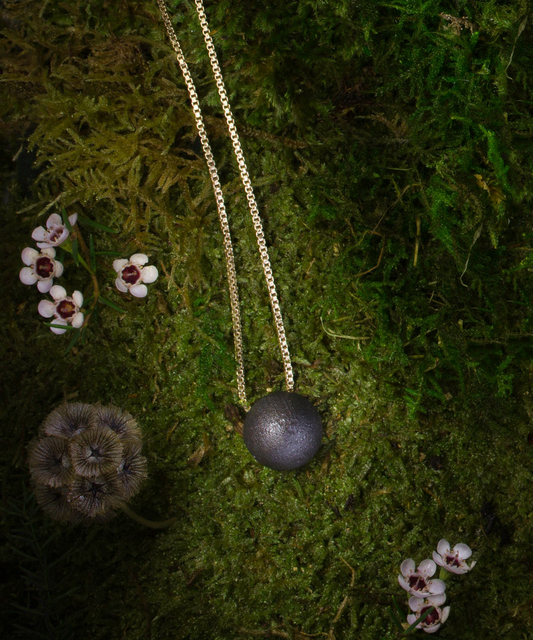You can find more about Ashley and her work at distantshoresdeathcare.com
As end-of-life approaches for a person's body, knowing what to expect in the dying process can be instrumental in helping those around them cope with the unfamiliar process. But what about being able to create the best care plan for the person who is passing on? What about being able to approach the conversation about dying in the first place? Dying is a natural process that most of us will experience more slowly. With the help of a death doula, you can thoughtfully and lovingly approach the early stage of dying to the last days of life with intention.
I had the incredible opportunity to talk with Ashley Bryan, the owner of Distant Shores Death Care, about her role as a death doula caring for those in their last days of life. After our conversation, I'm convinced that including a death doula should be a regular part of the dying process. From having someone who can help you identify each end-of-life stage to making sure you don't call 9-1-1 when you don't need to, death doulas are clearly an integral part of an interdisciplinary care team.
*Please note: the following has been redacted for this post. To listen to the full interview, you can do so above!
When it comes to religion and spirituality, there's clearly a spectrum of beliefs from the devout to the atheist. Ashley shared that "it's the people on the edges that are panicking the most" when faced with a terminal illness at the end of their life.
ASHLEY
[Athiests] are like, what if I'm wrong? Whereas over here, [devout] people are thinking, what if I'm right and I didn't do a good job? [They don't doubt their religion], they doubt that they'll be shown any mercy or that they'll have any kind of good rebirth. They believe it so fervently that they do not hold themselves up to the standards they believe in. I have noticed is that it's the spectrum in the middle where people are more fluid and comfortable or not comfortable with death. It depends on where they are in the middle. That's been really surprising to me. So the people in the middle of that spectrum, they're a bit more open to talking about death.
I think there's a generational component to this too. I think older generations were raised with some pretty harmful ideas about death. I know one person in the silent generation, for instance, who was not allowed to go to her grandmother's funeral because kids didn't go to funerals at that time. So she had to stay with a neighbor, and she remembers being so upset because she didn't get to go say goodbye to her grandma. So if you're raised with that kind of culturally pervasive myth that death is so taboo, the odds of you passing it on to your kids are high. But the idea being baked into like the foundations of who you are, that's very high too. That's not something people can snap out of because it's so profoundly imprinted on them.
But younger generations, I will say, seem a lot more comfortable talking about death. I don't know if it's because of world events and cultural events that have changed us. Or because of changing religious trends in America, for instance. I don't know if it's because, with the internet, we have the sum of humanity's knowledge at our fingertips, right? You do have some people that are on social media documenting their end-of-life changes. I think they're doing a public service. If there's no coercion involved with it, that is an incredible act of bravery to let people in on that very intimate journey as end-of-life approaches.
Although there are generational differences and some potential softening around how we handle death and the dying conversation in our culture, Ashley goes on to share that from her perspective, "our culture is completely out of whack with its willingness to explore how to make the dying process better, and mainstream society [doesn't support] conversations on how to make the end of one's lifespan better. It would rather support, especially when it gets to the medical field, keeping [people] alive at all costs." And considering, according to studies she's seen, only 8-11% of people die suddenly, "an overwhelming majority [of people] are going to see death coming... it's going to be a gradual thing. Our culture really needs to get a lot better at making that 'Death is coming' process better for everyone involved."
CLAIRE
Before diving deeper, I want to make sure everyone knows what a death doula is. Can you give us a definition of that? When I told my husband and dad I was going to interview a death doula, they had no idea what I could be talking about because they didn't even know the word "doula" from the context of birthing.
ASHLEY
That's one of the problems. [There's a] very gendered understanding right out the gate. Because if I say death doula to a woman, [they have] instantly some idea of what's going on because of birth doulas. So [with] 'death doulas' or 'end-of-life doulas,' we are kind of piggybacking linguistically off the work birth doulas have done in culture before us.
So a death doula can be for humans or for pets. Some people, like myself do both. But it's someone who provides non-medical aid with dying in the dying process. The doula's focus is the dying person and the support team [which is] usually the family, but not always. So if you have no idea what a doula is, I would say a death doula is someone who, in the chaos and uncertainty of dying, is your steady point in the room. They're the ones who can read the room, read the situation. They've been around death and dying before. They can fill you in on what's going on.
They can alert you to, 'oh, this is happening now' ... 'this is active dying, so you really do want to spend as much time as possible now if that's something you want because you're not getting much more time.'
So it takes experience to be able to see these things. We don't give medicines. That's the big thing. If you want to give pain medication, you need licenses, you need education, death doulas, do not do that. So you ever encounter a death doula who's like, yeah, I can give them blah, blah, blah. No, they cannot.
CLAIRE
What about a death doula who is also an RN?
ASHLEY
Well, some nurses are also death doulas. Death doulas could have a career as an RN. But if you become a death doula and you don't have the RN training, you can't [provide medication]. And in fact, most RN/death doulas only wear one hat at a time.
CLAIRE
So how do you start working with a client?
ASHLEY
I don't feel death doulas only have to help the people whose death is nigh. In fact, a lot of death doulas, myself included, would tell you you can start planning for death and talking about death when you are very much alive. When you feel like you're not going to die anytime soon, you should probably talk to a death doula. Not because it's going to attract death. Death doulas do not jinx you. It's not utter the word, and death appears - the Grim Reaper's come. It's not like that at all. But there's a lot of prep work.
So one of the things I live by is that with death, there's a little to fear but much to plan for. You do your best planning [before] the clock's ticked down to the final buzzer. You're able to actually give it thought and consideration to set yourself up for success. Assuming you're going to be one of those people that dies gradually.
CLAIRE
My dad's 73, and we've been having more of those conversations recently. He's been having some health issues, and we are talking about it. He jokingly said, "you know, I realized recently that, you know, I'm probably going to die one day," with an ironic as if this is news delivery. It's amazing how being able to talk about it and just be like, yes, it's not happening right now, but it's something that's going to happen. It's sad, but it's much less scary.
ASHLEY
I think a lot of parents, assuming they have good relationships with their children, a lot of parents really want to hear their kids say, I know you'll die one day, and I'm going to miss you so much, but I'm going to be safe. I'm going to be okay. If you have a parent-child relationship like that, the parent definitely wants to die before you because it's a parent's worst nightmare to have their kids die before them. So then the good parent has to grapple with: in order for this agreement with fate to come out, I must die before them. So if you can be honest with your parents and say, 'I'm going to miss you, but I'll be safe, and I will honor your wishes.' That takes a load off the parents' shoulders. And that's something to do when your parent's healthy. Parents might make a joke like, 'oh, don't be morbid' or whatever. But you tapped into [something]. Just saying it once takes a load off.
CLAIRE
I love that. It's great advice. How long have you been doing this? How did you become a death doula?
ASHLEY
What got me passionate about [being a death doula and] how America could do better with [death] was all my years of fieldwork in India. Basically, when I was around dying people in India, I saw how differently the whole process was created by the community. The support that existed there just does not exist in America. [I realized] we are not doing very good with this. Our culture really was dropping the ball on this. That's what made me passionate to be like, you know, things could be different. And one way things could be different that you can control on a micro level is your personal preparedness for it.
[Yes], societal changes have to happen. Huge changes have to happen. But there are some things that each and every one of us can do to affect our ideal trajectory that will have huge impacts on everyone around us. [Preparedness] would make your death and dying process better. It would make [the grief of] everyone who cares about you that survives you a bit easier because you're going to provide context for it and ways for them to channel it. [They'll be able to know] we're doing exactly what so and so wanted.
CLAIRE
I can imagine that makes a huge difference. So how do things usually initiate with you, and how do you work with people like that?
ASHLEY
If it's the dying person [who hires me], they've already overcome this huge mental issue because they're not hiring me to, you know, drive them around - I'm not their Uber. They know why I'm here because they're the one who called me there. But if it's the kids calling me. I introduce myself to the dying person, assuming they still have consciousness. I tell them what I am and what I do. And then I usually just shut up for a little bit and let them start talking. The first thing I gotta do is just build rapport. So I don't ever come in a room guns a blazin' like 'yeah, all right, let's talk about your death.'
That's not all. Anyone could learn to be a death doula. I think something a lot of people mess up with is they think they have to have all the answers. You don't. But you have to be all ears. You just have to listen. So if you don't have an answer, people appreciate when you say I don't know right now. Why don't we think about this a little bit. I am convinced that if a dying person still has consciousness, they can tell when you're lying. When people are dying, they don't have time for this.
CLAIRE
So you're saying that there's this rhythm - I imagine there are some specific pieces, like change in breathing pattern, that you look for in the stages of death. What are some of those common signs?
ASHLEY
[In the early stages], the mobility declines. So before you get to breathing and all that, if someone could walk across our house before having to sit down and rest, that is a benchmark. If four days later, they can only walk across their room before they have to sit down and rest, start paying attention. Because at the end of your life, energy is your currency. You don't even realize it during your life, but you have been making deposits in an energy bank, so to speak, and withdrawing from an energy bank. As death approaches, you cannot deposit more energy. You're strictly withdrawing at that point.
Another thing is periods of sleeping are going to be longer because you're withdrawing energy. Eventually, when you get to active dying, the muscles will relax, and the breathing will sound different. There's different types of breathing (shortness of breath, noisy breathing, rapid breathing, cheyne-stokes breathing), not everyone will experience all different types. The skin color starts changing (as the patient's circulation changes). The extremities of the limbs (like the patient's hands) start looking a little different. The mouth gets drier, the lips get drier.
The big one that scares people is the mouth [hangs open] because every time we close our mouth, that takes energy, and you are withdrawing. You're not depositing in the energy bank [at this stage]. When you're withdrawal, everything hangs loose.
For most people, the lack of consciousness, most people 'go quietly into the good night', you know, that's a pretty famous quote, most people do, especially with modern medicine. So it's an energy reading. Think, can they move? Can they turn over? Like, can they even just go side to side at the end.
Something I kind of like is when people reach because it's incredible to see, or people will see someone that's not in the room. I love those as a death doula because that is a strong sign. That is a book your flights, you don't have much time [sign]. So if people, I call them day trips. If a person who's dying kind of zones out and they're looking at something, right? And you're like, I don't see anything. And if they can come back from their day trip and tell you, 'Oh, you know, I could have sworn I saw my mother, I saw my pet.' [At that point] I tell my clients, you definitely don't have more than two weeks. Honestly, you're in the final days. So if someone's reaching up or reaching towards something that's not there, that is the strongest indicator. You know, call everyone.
A lot of people die in the quiet morning hours. A lot of people give birth in the quiet morning hours too. I'm always fascinated by the parallels of the birthing process - one of the hills I would put my flag on is that birth and death are way more similar than they are different. So if someone's been in act of dying and, you know, it was a whole day of active dying - two to three AM when things are quiet and still a lot of people die. A lot of people don't die at like two in the afternoon. I don't know why. Something to the stillness, I think.
CLAIRE
That liminal stage...
ASHLEY
CLAIRE
ASHLEY
It's like, oh, my mom was always very shy, introverted. And if she's been... You know, for all intents and purposes, she should have died already, but she hasn't.If we are able to have this conversation before, it might be like, hey guys, why don't we step out of the room for one minute? That's all it takes. You know, and if the kids are prepared that way, they're able to do it in a beautiful way.
CLAIRE
ASHLEY
Ashley shared that even details down to whether or not the unconscious person enjoys massage can be instrumental in helping ease them in their final moments. Planning ahead can help ensure the patient's wishes are fully considered. For instance, someone who likes/doesn't like massage, or other types of gentle touch, can be sure their loved ones and health care team know that in their final stages when they don't have the energy to communicate it.
CLAIRE
Oh my God. This is just something I would never have thought about. It's like, hey, did you get a wedding planner for your wedding? You might want to get a death doula, too, you know? Just to make sure that arguably one of the most important events in your life, this end, will be done in the way that it's going to feel the best it can.
The guidance of a death doula doesn't stop after the person has died, either. This support is just as much for family members and close friends as well. Ashley shared that one time she had to stop someone from calling 9-1-1 and remind them that there was no emergency. Instead, she would be able to take care of calling the hospice team to alert them to the time of death. The loved ones could be still, take time to begin processing the passing, and be with the body.
ASHLEY
I believe, more than ever, with every death I encounter, that death can be a very healing process. It's not a curative process because death is the end, right? There's no coming back from that. But if a death is well planned for, well structured, and everyone is honest about it, the process of dying can be very healing. Because when you address the elephant in the room, when you finally admit to everyone, 'I know my time is finite,' you can do the necessary, beautiful, meaningful work of letting everyone know how much they mean to you.
You know, your bones could be dust, but the way you showed others how to die will continue. So I guess I'm an optimist.
Connecting with Ashley brought so much new perspective to my understanding of the death process and my willingness to discuss it openly. To hear more details and the nuances of our conversation, please listen to the full podcast episode above. This is a big topic that we just started to cover, so please don't hesitate to leave a comment or question!




